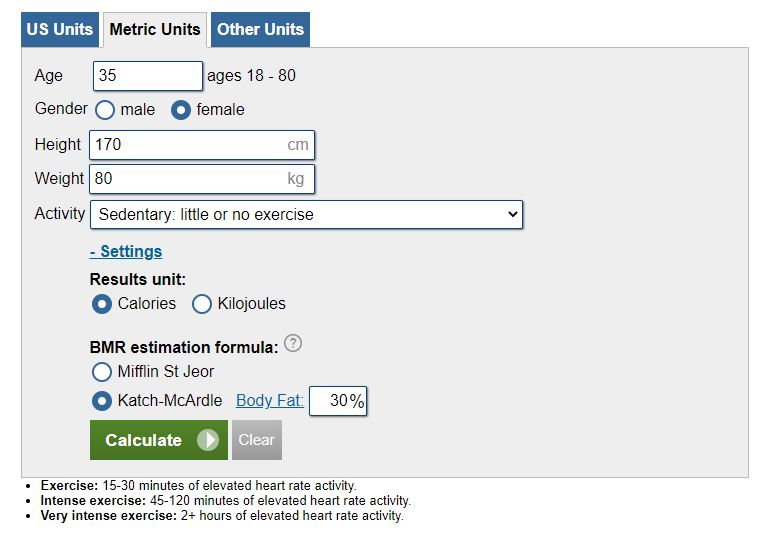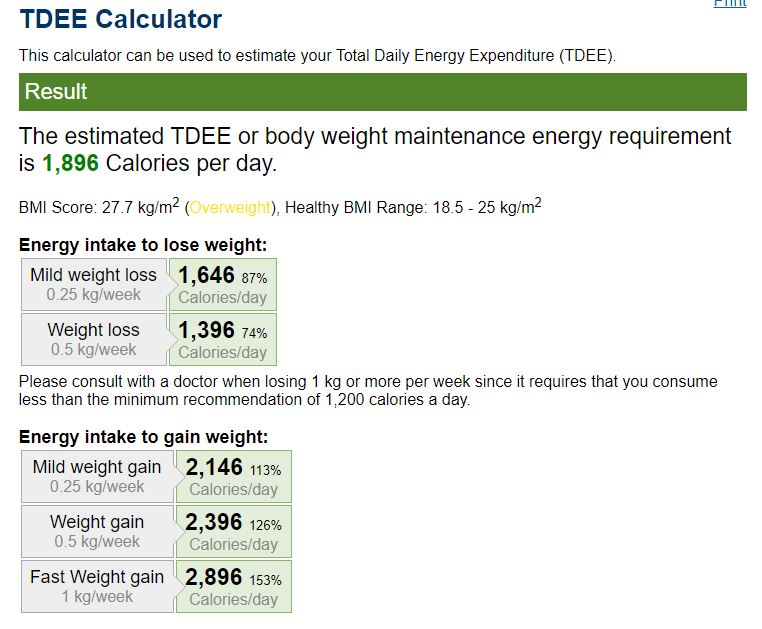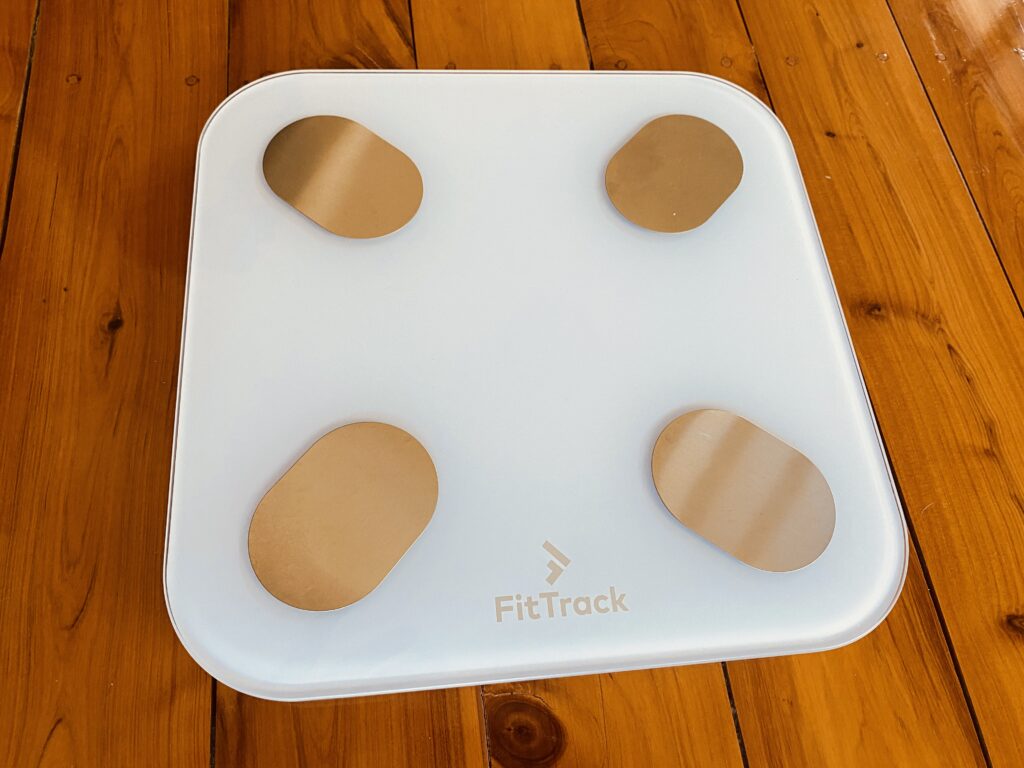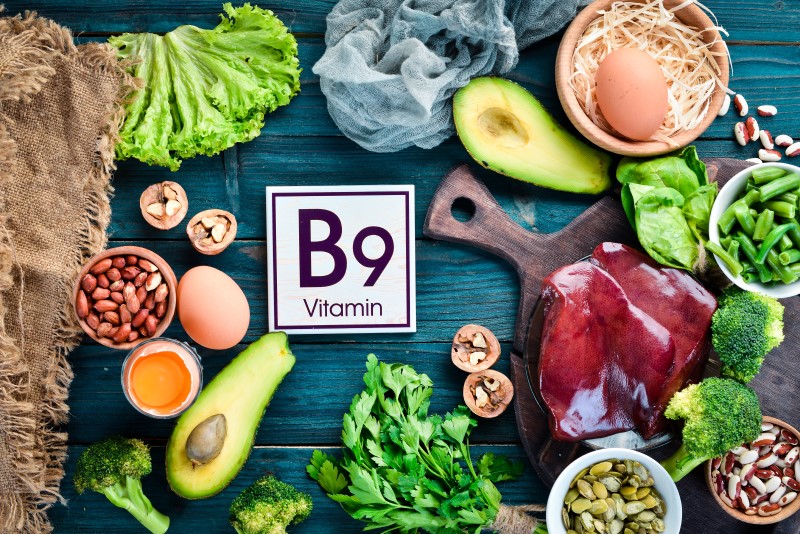This post may contain affiliate links at no additional cost to you. As an Amazon Associate I earn from qualifying purchases. Click to view our full disclosure.
What's inside
Most people don’t know how metabolisms function. They understand that a slow or sluggish metabolism can cause weight gain and difficulties in losing weight.
But a slow metabolism can be much more problematic than having a hard time shedding body fat.
People who have a poor functioning metabolism may experience certain symptoms.
- Ever feel cranky when you wake up?
- Constantly feel tired?
- Have frequent mood swings?
- Have a lack of mental clarity and focus throughout the day?
- And maybe even feel a bit depressed?
If you answered yes to any of these questions, your metabolism may be to blame—all the more reason to make the changes needed to fire up your metabolism like the good old years!
That’s exactly what we are going to cover in this article.
After reading it, you will know:
- What your metabolism does and how it works.
- Important Information you need to know about your metabolism and how to keep it fire up.
- How to calculate your metabolism.
- The 6 biggest diet mistakes that slow down your metabolism.
- What nutrients play a key role in your metabolism.
- Why undereating can damage your metabolism.
- The 3 biggest lifestyle factors that can negatively affect your metabolism.
- What changes you can make to boost your metabolism, so you will effectively maintain your current weight or lose excess stored body fat.
- And much, much more
Let’s start at the basics.

What is the metabolism?
Related: 67 Gym Slang Terms
Metabolism is the process of converting what you eat or drink into energy and one of those processes is to combine those calories with oxygen and release the energy into the body.
There are not so obvious functions of the body that require energy to keep us alive, even at rest. The calories your body uses for the basic functions are known as the basal metabolic rate or what we know as the metabolism.
The basal metabolic rate mainly stays the same and include the functions of:
- Digestion.
- Circulating blood.
- Grow and repair your cells.
- Breathing.
- Regulate hormones.
- And all the other vital functions of your body.
One of the key factors of the metabolism is its resting “Basal Metabolic Rate” (BMR), which is basically the minimum required calories to keep your vitals operating at rest.
Your BMR accounts for roughly 50 – 80% of your total metabolism and factors that influence your BMR include:
- Your mass
- Your age
- Your body size and type
- Your gender
- Your genetics
- Your hormones
- Your environment
A “slow metabolism” is more accurately called a low BMR (Basal Metabolic Rate). We want to increase our BMR to burn more calories throughout the day and during our resting periods.
But here’s the kicker!
The more muscle mass you have the faster your metabolism. Overweight individuals generally have a faster metabolism as well (Shocker) because it requires more energy and muscle to carry bigger bodies.
Another common belief is skinny people have a faster metabolism and this isn’t always the case. Due to varying factors, it may be a skinnier person may eat fewer calories throughout the day and they tend to have less lean muscle mass which may equate to an average metabolism rather than a fast one.
The more lean muscle mass you have the faster your metabolism.
Many people blame a slow metabolism for their excess weight and this can be a valid reason, but it’s more so, as we grow older, our activity levels fall and muscle mass decreases among many other factors.
But the most common causes of weight gain is:
- Overeating.
- Lack of physical activity.
- Genetics and family history.
- Some medications.
- Unhealthy habits, not sleeping, excess alcohol, eating high sugary foods.
The metabolism may not be the root cause, but it does have a role and you must learn how to stimulate the metabolism, which you will discover here.
I should also discuss the complete metabolic factors, such as the number of calories you burn in a day also depends on:
The Thermic Effect of Food (TEF)
The number of calories you burn to digest and process the foods you eat. TEF accounts for roughly 10% of your TDEE.
The Thermic Effect of Physical Activity (TEPA)
The Thermic Effect of Physical Activity (TEPA): This is how many calories you burn from your physical activity.
Thermic Effect of Exercise (TEE)
(TEE) How many calories you burn during exercise and non-exercise activity thermogenesis (NEAT): How many calories you burn from physical activity other than exercise, like standing and walking around.
Bringing them all together to find your TDEE looks like this.
So, your Basal Metabolic Rate (BMR) + The Thermic Effect Of Food (TEF) + The Thermic Effect Of Physical Activity (TEPA) = Your Total Daily Energy Expenditure (TDEE.)
All this sounds confusing and it is!
To simplify the math, for weight loss, the total amount of calories you burn in a day should be below your TDEE. To maintain your weight, you would eat around your daily TDEE requirements.
In most modern diet programs the popular way is to eat 500 calories below your TDEE.
To gain muscle, you need to eat above your TDEE. This is the basis of the calories in vs. calories out model.
Because of the internet, we can simplify this even further by using free health calculators made by very smart people to do all the formulas instantly.

How to calculate your metabolism
There are many free tools you can use to calculate your metabolism.
If you want to know what your resting BMR number is, you can visit the website here.
The Basal Metabolic Rate (BMR) Calculator estimates your basal metabolic rate—the amount of energy expended while at rest in a neutrally temperate environment, and in a post-absorptive state (meaning that the digestive system is inactive, which requires about 12 hours of fasting).
calculator.net
Women who hit menopause, may experience a greater loss in metabolic rate and around about this time, generally, there is a drop-in activity level.
For women, it can be difficult to lose weight after menopause.
Factor this in with how muscle mass decreases as we age (sarcopenia), it starts to decline after the age of 30, which also lowers our metabolic rate.
What can you do to start combating this now?
One of the most effective ways to increase your metabolic rate for women and men is exercising, building muscle mass and losing excess body fat.
The solution is obvious, but it’s not always what we want to hear.
But here is the thing…….
There are certain exercises that are better than others and there are many other ways that may help boost the metabolism of older people (young as well) and we’ll discuss those further in the article.
Let’s look at how to lower our body fat.
When it comes to lowering our body fat, we need to know what our total daily energy expenditure requirements are so we don’t overeat.
You can calculate your total daily energy expenditure by using this TDEE calculator.

Follow along and fill out your numbers.
You should try and find out your body fat percentage for the most accurate results and you can compare yourself to these people for now.
Below in green, you will see the results for your daily calorie requirements to maintain your weight, which in this example is 1,896 calories per day.
Underneath are the calories to lose weight and it’s your choice on your rate of fat loss per week. Keep in mind the lower you go with your calories, the more you need to be mindful of the foods you eat.

If you plan on losing weight over 6-12 months then the mild weight loss plan is ideal. For those who want to lose weight faster, you can go with the 500g per week option or lower.
The lower you go the more hungry you may feel, that’s why choosing the right foods can help keep you fuller for longer and provide essential nutrients.
What tools can you use to monitor progress?
This is completely optional, but smart scales are a very accurate way to track your body fat percentage and I actually own one.

The smart scale calculates your BMR, fat mass, muscle mass, bone mass, in total 17 vital health measurements.
Another great benefit of a smart scale is it gives you an indicator of your metabolic age, which compares your numbers with people similar to you.
If your metabolic age is higher than your current age, you should work on lowering your metabolic age.
Now I use and recommend FitTrack Scale and in my opinion is the most accurate tracker on the market, in terms of a bodyweight smart scale.
Rather than using pictures of people to compare my body fat percentage, I accurately measure my fat mass to re-calculate my TDEE as we discussed above using the FitTrack Scale technology.
Using the scale can help you:
- Make progress faster.
- Get accurate body metrics.
- Help you know whether you’re losing fat or muscle.
- Tell you whether your metabolism is working for you or against you.
- And much, much more
Alright let’s deep dive further into the metabolism.
What are the causes of a slow metabolism?
Related: Are Green Powders A Waste Of Money?
Let’s get into some of the causes of a slow metabolism.
Unless you have a disease or underlying medical condition, it will always have something to do with one of these categories:
- Your diet/food choices.
- Your workout programs.
- Your lifestyle, age and gender.
Let’s have a look at each of the factors that fall under these categories.

The 5 biggest diet mistakes that slow down your metabolism
Related: What is The 75 Hard Challenge
What you eat is a big factor in how your metabolism responds. Most people are unaware that the diet choices they make can impact how your metablism functions.
Let’s look at the 6 most common mistakes you should avoid when it comes to boosting your metabolism and diet:
1. You’re eating too many simple carbs
Eating too many simple carbs/added sugars is one of the worst things you can do for your metabolism.
Why?
Because simple carbs are stripped from all of its healthy nutrients, like fiber and antioxidants.
As a result, your body doesn’t have to put as much effort into digestion and it prevents you from feeling full.
Even worse, simple carbs have an addictive quality.
The more you eat, the more you crave.
It can be a vicious cycle that’s hard to break.
Out of all the foods that contain simple carbs, sugary beverages are probably the worst for you.
But a list of other foods that people tend to eat too much of:
- Pizza
- Deserts
- Ice cream
- Cookies
- Cakes
- Pastries
- White bread
- Processed Pasta
- Breakfast cereals high in sugar
The list is short but you get the bigger picture in the types of simple carbs to limit. Sure you can enjoy those foods but it’s moderation.
2. You’re not eating enough protein
Eating enough protein is crucial for a fast metabolism. But, unfortunately, most people don’t eat nearly enough protein.
Possibly because of the absurdly low recommended daily average (RDA): The RDA is only about 0.8 grams per kg or 0.36 grams per pound.
This roughly translates to about 46 grams for the average woman and 56 grams for the average man.
So why is this number so low?
Because these guidelines are based on outdated ways of thinking.
Like, for example, that eating too much protein can cause kidney disease or osteoporosis.
But that has all been disproven.
Eating a high amount of protein can only harm those with an already underlying kidney problem.
Not those with a healthy kidney and eating more protein do not harm your bones.
In fact, more evidence points to the contrary.
Eating more protein actually improves bone health.
So, there’s no real reason to limit protein intake.
Because most of the people reading this will be let’s say, older and wiser.
There are multiple reasons why eating a higher amount of proteins will benefit your metabolism:
Reason 1: Protein takes longer to digest than carbs and fats.
Protein has a much higher TEF than carbs and fat: It takes your body longer to digest proteins than carbohydrates and fats.
Proteins can increase your metabolism by a whopping 20 to 30%.
In comparison, your metabolism only increases by about 5 – 10% when you eat carbs.
With fats, this number is even lower: 3%.
What this means is your body burns off 20 to 30% of the calories through digesting and metabolizing the protein.
So, for example, you eat 600 calories from proteins. Those 600 calories will only supply you with 420 – 480 usable calories. By eating more protein, you can increase calories burned per day by 80 – 100 calories.
But this number can be as high as 260 calories on days where you’re eating in a caloric surplus.
Reason 2: It may help you lose more weight.
Eating enough protein will also help you lose weight.
How?
By decreasing your appetite and cravings for foods that may slow down your metabolism.
This is because protein is by far, the most filling nutrient.
Reason 3: It may help you build more muscle, which boosts your metabolism in a resting state.
Your metabolism also depends on your muscle-mass.
The more muscle you have, the faster your metabolism.
A pound of muscle burns three times as many calories as a pound of fat, about 6 calories per day.
Eating enough protein is crucial to building muscle-mass effectively, If you’re not eating enough, you may not maximize your muscle growth.
Reason 4: It may prevent muscle loss, which prevents your metabolism from slowing down.
Also, to lose body fat, you need to be in a caloric deficit. Unfortunately, this has two inevitable downsides:
- You will never only lose body fat. You will also lose a certain amount of muscle.
- Your body also adopts a lower amount of calories by slowing down your metabolism if you lower your calorie intake too drastically or for a long period of time.
While it’s impossible to avoid these downsides altogether. Eating enough protein may help limit how much muscle you lose and may prevent your metabolism from slowing down.

3. vitamins and minerals that are crucial for your metabolism to thrive
Each of the following vitamins and minerals is crucial for your metabolism:
- The B vitamins: B12, biotin, folate, B-6, pantothenic acid or B-5 niacin or B-3 riboflavin or B-2 & thiamine or B-1
- Vitamin D
- Calcium
- Magnesium
- Iron
Vitamin B
If you’re deficient, it can not only negatively affect your metabolism, it can lead to several health conditions.
Unfortunately, a large part of the population is not getting enough of micronutrients from their diet:
It’s estimated that 9 – 16% of the population is at risk of having a B12 deficiency.
You’re at most risk when you follow a vegetarian/vegan diet or if you are elderly.
Adults should be getting about 2.4 mcg of B12 per day.
Vitamin D
Around 1 billion people don’t have enough Vitamin D in their blood.
You’re at most risk when you’re overweight, you have dark skin, you’re of elderly age and not eating enough fish or dairy products.
You should be getting about 25 – 100 micrograms per day / 1000 – 4000 IU.
Calcium
3.5 billion people are at risk of calcium deficiency.
You’re at most risk if you don’t eat any dairy products. Your body needs about 1,000 mg of calcium each day
Magnesium
As much as 75% of people have a magnesium deficiency. If you’re a male, you should be consuming 400 to 420 milligrams of magnesium a day.
If you’re a female, you should be consuming 310 to 320 mg a day. For pregnant women, this number is higher.
2 billion people are at risk of an iron deficiency. One of the leading risk factors for disabilities and death worldwide.
Iron
If you’re a female, you’re at most risk of having iron deficiency. 20% of women and 50% of pregnant women do not have enough iron in their bodies.
If you’re a man, this number is much lower: 3%. Adult men should be getting about 8mg of iron per day and women about 18 mg.

4. You’re undereating
Crash diets are very popular these days.
It’s basically eating as few calories as possible. In the minds of the people that follow these diets, it’s the best way to lose weight quickly.
After all, how much weight you lose depends on how big of a caloric deficit you’re in.
While in theory, this is true, there’s a big problem with undereating.
It puts your body into starvation mode.
To make the most use of the extremely low amount of calories, your body will severely slow your metabolism as a way to conserve energy.
It will also start to burn muscle mass as a way to provide enough fuel.
Later in the article, I’ll discuss the best approach to combating undereating and the recommended calorie deficient, so stick with me.
5. You’re drinking too much alcohol
Research has shown drinking alcohol can actually temporarily increase your metabolism.
But here’s the kicker:
This only happens when you drink a moderate amount: 1 drink per day if you’re a woman and 1 – 2 drinks a day if you’re a man.
If you go over that amount?
The absorption of other nutrients will be blocked because your body can’t store alcohol.
Instead, your body will start to prioritize getting the alcohol out of your system.
As a result, sugars and fats will no longer be metabolized as effectively and your metabolism may slow down.
Also, alcohol contains nothing but empty calories. There really isn’t any nutritional benefit to you.
Alcohol makes you crave bad foods and this generally leads to eating too many calories.
Stay within the recommended intake and you shouldn’t have negative side effects.
6. You’re not drinking enough (cold) water
And lastly, most people don’t drink nearly enough water.
Besides all of water’s health benefits, it also boosts your metabolism.
Drinking just 17 ounces or half a liter can boost it by up to 30% and this number can be even higher for cold water.
It will also reduce your cravings for bad foods.
The 2 workout mistakes that negatively impact your metabolism
The way you approach your daily exercise can make a big difference in your metabolism.
Here are the three main workout mistakes:
- Your cardio sessions are too long.
- You’re not doing enough resistance training.
1. Your cardio sessions are too long
To lose weight, you need to burn more calories than you consume. And an hour-long session of cardio burns more calories than an hour-long session of weight lifting.
That’s the reason why many people choose to do very long sessions of cardio.
But this can do your body (composition) more harm than good.
Why?
Because it puts your body in a catabolic state.
It will start to breakdown muscle mass as fuel. A lower muscle mass means a slower metabolism.
2. You’re not doing enough strength (Resistance) training
Long cardio sessions often go in hand with not doing enough weight training or no strength training at all.
The thing is muscle burns three times as many calories as body fat. Every pound of muscle burns 6 calories per day compared to 2 calories for every pound of fat.
Strength training can increase your muscle mass in as little as 3 days per week people experience a 7.4% increase in their metabolic rate. Having a lower fat-free mass can significantly increase your calorie-burning during rest.
Strength training also has the most significant effect on post exercise oxygen consumption (EPOC).
Also known as the afterburn effect.
Your body needs extra oxygen to repair the damaged tissues in your muscles after a workout and this boosts your metabolism for a certain period.
Studies show your BMR can increase up to 9-10% (Metabolic Boost) for 15-38 hours after an intense weightlifting session.
How high EPOC is, depends on the intensity of your workout.

Lifestyle factors that slow down your metabolism
Your lifestyle can prevent your metabolism from working optimally. One of these lifestyle factors is completely in your control. But the other two can sometimes be harder to control:
- You’re living a sedentary lifestyle
- You’re under too much stress
- You’re not getting enough (quality) sleep
1. You’re living a sedentary lifestyle
A lifestyle with little to no physical activity is one of the leading causes of slow metabolisms and it can have many adverse effects on your health.
According to research, about 65% of people claim to live an active lifestyle. But the numbers show something very different.
According to the U.S. Department of Health and Human Services:
- Only 5% of adults do the recommended 30 minutes of physical activity each day.
- More than 80% of adults do not meet the guidelines for aerobic and muscle-strengthening activities.
Ultimately, most people don’t move enough and sit or lay down way too much.
2. You’re under too much stress
Stress is a lot of times unavoidable and it also plays a crucial role in all types of growth, physical, mental, and emotional.
But when you’re under too much stress?
It can wreak havoc on your metabolism.
This happens because it elevates the stress hormone cortisol.
Releasing cortisol is usually not a bad thing.
But when you release too much of it, It can have many adverse effects:
- You may feel fatigued, poor sleep quality, or irregular wake or sleep cycle.
- It may stop you from losing weight.
- It can destroy muscle-tissue by breaking it down for energy.
- And, ultimately, a slowed-down metabolism.
3. You’re not getting enough sleep
If you’re having sleeping problems, it may impact your metabolism.
An estimated 35% of adults don’t get enough sleep.
What happens when your sleep deprived is your body produces less “Thyroid Stimulating Hormone (TSH).” THS is responsible for your metabolism.
Not producing enough THS makes it harder for your body to process glucose.
It can take you 40% longer to regulate blood sugars.
A lack of sleep also raises the stress hormone cortisol.

Diet changes that may ignite your metabolism
Even though the biggest change you can make to your metabolism is shifting your body composition, diet does have its role.
Your diet is part of the whole cycle and changing what you eat is another factor to boost your metabolism and improve your overall health.
Here are the most significant changes you can make to your diet right now:
1. Replace simple carbs with complex carbs
Cutting simple carbs out of your diet as much as possible and replacing them with complex carbs will be a complete game-changer.
You would be surprised at how low the RDA of added sugars per day is:
- For women: You should eat no more than 100 calories per day, which equals 25 grams or 6 teaspoons.
- For men: You should eat no more than 150 calories per day, which equals 37.5 grams or 9 teaspoons.
Reaching this number happens very quickly and can only be avoided if:
- You cut out sugary drinks from your diet completely.
- You avoid cereals with high amounts of sugar.
- You avoid sauces that contain a lot of sugars.
- You make a habit out of reading read food labels for the amount of added sugars.
- And replace simple carb foods with whole foods like whole-wheat bread, whole-wheat pasta, whole wheat flour, oatmeal, brown rice, barley, quinoa, potatoes, corn, black beans, chickpeas, lentils, etc
2. Eat at least 1.8 grams of protein per kg bodyweight
As mentioned, enough protein will ramp up your metabolism by:
- Increasing the thermic effect of food (TEF).
- Reducing your cravings for foods that slow down your metabolism.
- Helping you build more muscle.
- Preventing muscle loss when you’re dieting and exercising.
But how much protein is enough?
Research has shown you need to eat at least 0.5 grams to 1.2 grams per kg of body weight to prevent your metabolism from slowing down.
But that number is not enough to optimize muscle growth and prevent muscle loss.
For that goal, you need to eat at least 0.82g of proteins per lb or 1.8 grams of protein per kg.
3. Eat foods high in the vitamins and minerals that are crucial for your metabolism
The vitamins and minerals that are crucial for your metabolism are:
- B vitamins: B12, biotin, folate, B-6, pantothenic acid or B-5 niacin or B-3 riboflavin or B-2 & thiamine or B-1
- Vitamin D
- Iron
- Calcium
- Magnesium
You can get enough of them from your diet by eating the following foods:
Foods that contain Vitamin B
- Lean meats and seafood
- Whole-grain foods like brown rice and oatmeal
- Dairy products like yogurt, milk, cottage cheese
- Eggs
- Fruits like bananas, apples, avocados,
- Nuts and seeds like sunflower seeds, walnuts, and almonds
- Dark leafy vegetables like spinach, broccoli, and kai-lan
B12 is generally only found in animal foods. But if you’re a vegetarian, you can also get B12 from:
- fortified plant-based milk
- nutritional yeast
- fortified cereals
- meat substitutes with added B12
- some spreads, such as Marmite
Foods that contain Calcium
Dairy products are the best source of calcium. Some foods contain calcium in smaller amounts:
- milk
- yogurt
- fortified cereals
- fortified orange juice
- dark green, leafy vegetables
- seeds
- almonds
For Iron
You can find iron in:
- meat
- beans
- fortified cereals
- brown rice
- nuts
- dark green, leafy vegetables
- tofu and soybeans
For Magnesium
You can find magnesium in:
- nuts and seeds
- legumes
- spinach
- bananas
- salmon and halibut
- whole grains
- potatoes
For Vitamin D
And finally, the sun is the best source of vitamin D. To get enough of it; you need to spend about 10 – 15 minutes in the sun each day. But some foods contain vitamin D in small amounts:
- egg yolks
- fatty fish, such as salmon, mackerel, and sardines
- cod liver oil
- beef liver
- fortified dairy
- fortified plant-based milk
- fortified breakfast cereals
- some types of mushroom
4. Don’t eat too far below your TDEE
Undereating can severely impact your metabolism and the higher the caloric deficit for a longer period of time increases the likelihood your metabolism may start to slow.
Also, the longer you undereat, the longer it will take for your metabolism to recover.
That’s why you should avoid eating too far below your TDEE for extended periods.
Generally, 500 calories below your TDEE is the safer way to lose weight and is the most common.
As we have already covered, make sure to do weight resistance training to preserve as much muscle mass and increase your protein intake.
5. Limit your alcohol intake
Drinking some alcohol can be a part of a healthy lifestyle: You don’t need to remove it from your life altogether.
But if you want your metabolism to work at the highest level?
It’s wise to stick to the RDA of:
- Max 1 drink per day for women
- Max 1 – 2 drinks a day for men
6. Drink more (cold) water
Drinking more (cold) water will boost your metabolism and prevent the downsides of being underhydrated.
How much you should drink depends: It’s different for each person.
But a good guideline to stick is:
- Drink at least 3 liters a day if you’re a male
- Drink at least 2 liters a day if you’re a female
This number can be higher on days where you’re sweating a lot or you exercise.

Supplements that prevent nutritional deficiencies
Getting all the essential vitamins and minerals from your diet is ideal.
But sometimes certain lifestyle factors can make that hard to do and it can be a pain to keep track of every nutrient you need.
That’s why supplements can sometimes be a good solution.
Depending on your specific situation, the following supplement could be a good addition to your diet:
- 1. Multivitamin supplement
- 2. Magnesium supplement
- 3. Calcium supplement
- 4. Iron supplement
- 5. Stress-reducing supplement
Multivitamin Supplement Recommendations
A multivitamin can help you get enough of all the B-vitamins. ATP Science’s “Multi Food” is a great choice.
It’s made from the highest quality of ingredients, so your body will actually properly absorb the nutrients.
Unlike some of the cheaper multivitamins on the market that use synthetics.
ATP Multifood is the one I personally use and you can visit their official website here.
Calcium supplement recommendations:
With calcium supplements, you have two options: “Calcium Carbonate” and “Calcium Citrate” supplements.
Out of those 2, the latter is absorbed more easily and it can be taken on an empty stomach. But it does need to be taken in a higher amount.
Labdoor ranked the best Calcium Citrate supplements on the market, here is the list of the top 6:
- Bluebonnet Calcium Citrate Magnesium and Vitamin D3.
- Solgar Calcium Magnesium with Vitamin D3.
- Rainbow Light Calcium Citrate Mini-Tablets.
- GNC Calcium Plus 1000.
- Kirkland Signature Calcium Citrate Magnesium and Zinc.
- Solaray Calcium Magnesium Zinc.
Magnesium Supplement Recommendation:
As mentioned, according to some research, as much as 70% of people don’t get enough calcium from their diet.
ATP Science’s “ZMST” supplement has a high amount of magnesium to prevent a possible deficiency.
But it also contains Zinc, which is crucial for a healthy immune system and Selenium, which is a powerful antioxidant with many potential health benefits:
- Improved thyroid health.
- Prevents mental decline.
- Reduced risk of diseases like cancer and heart disease.
- Boost your immune system.
I use ATP ZMST supplement as my choice of magnesium and it’s my recommendation and read about here on their website here.
Iron Supplement Recommendations
Research has shown iron supplements can be an excellent way to prevent iron deficiency. And, luckily, there are a lot of good iron supplements on the market.
- Best Overall: Slow Fe 45mg Iron Supplement
- Best Liquid: FLORA – Floradix Iron & Herbs
- Best Gummies: Belive Iron Gummies
Stress-Reducing Supplement
If you’re under a lot of daily stress: You could consider getting a stress-reducing supplement.
These types of supplements can help to relieve the symptoms of stress and decrease inflammation in the body along with many other benefits.

Ignite your metabolism through your workout routine
Your fitness routine will make or break your metabolism. It’s crucial to avoid doing the things that work against you. And to keep doing the things that will move you forward:
- Don’t do more than 60 minutes of cardio per day.
- Resistant train at least 3 – 5 times per week.
- Switch up your workout routine once every 4 to 6 weeks.
1. Don’t do more than 60 minutes of cardio
We’ve already established doing too much cardio is not good for you. But you’re probably wondering when you’re doing too much.
Here’s your answer: Research has shown that doing more than 60-minute of cardio is counterproductive.
When you go over the 60-minute mark, it will start to hinder your ability to burn fat and it will increase the stress hormone cortisol.
So, try to keep your cardio sessions short and sweet and the more intense the better.
2. Resistance Train at least 3 days per week
Strength training is crucial to boost your metabolism in a resting state. And, ultimately, to build an aesthetic body.
You should aim to lift weights at least 3 x a week. You can do a full-body workout program, where you train all your muscle groups on a single day.
With one day of rest in between workouts or you can train 2 different muscle groups on a day:
- Day 1: Back, biceps and abs
- Day 2: Chest, triceps & shoulders.
- Day 3: Legs & abs
With this approach, you can go to the gym on any day you like.
3. Switch parts of your exercise routines once every 4 to 6 weeks
You also need to prevent your body from adapting to your workout routine.
You can accomplish that by switching little things up once every 4 to 6 weeks.
Use the F.I.T.T. principle for this purpose:
- F: Frequency = The number of sets and reps you do for each exercise or the number of days you workout.
- I: Intensity = The intensity with which you workout.
- T: Time = The length of your workouts.
- T: Type = The type of exercises you do on a day.
You don’t need to change each of these principles.
Instead, you can start by changing just 1 principle. For example, the intensity, instead of resting for 2 minutes, rest for 1 minute. Simple steps to improve your exercise routine can be beneficial.
It will keep you progressing and ramp up your metabolism as much as possible.

Lifestyle changes that ignite your metabolism
Finally, making changes to your lifestyle can also make a significant impact on your metabolism.
Here are the three things you can do:
- Be physically active for at least 20-30 minutes a day.
- Try to improve your sleep and get at least 7-8 hours of rest.
- Use breathing exercises to decrease stress.
1. Be physically active for at least 30 minutes a day
Sometimes a job or other factors can make it hard to be physically active every day.
But it should be your goal to be physically active for at least 30 minutes each day.
It will prevent your metabolism from stalling and benefit you in many other different ways, like an increased mental clarity.
If you’re finding it hard to reach that number, look for ways to be active every chance you get.
For example:
- Make a short walk a part of your morning routine.
- Take a short walk during the break from your work.
- Opt to use a bicycle for shorter distances instead of the car.
- Buy a type of cardio equipment like a rowing machine or bicycle station to use at home.
- Opt to use the stairs instead of elevators.
- Clean your house more often.
- Do other chores in the house.
2. Try to improve your sleep
If you’re having sleeping problems, enhancing your sleep should be a high priority.
While that can be a hard thing to do, making small changes to your sleeping routine can sometimes make a big difference:
- Take a shower or bath before going to sleep.
- Buy an air purifier.
- If you live in a noisy area, buy some quality earplugs.
- Exercise daily.
- Avoid alcohol before going to sleep.
- Buy a more comfortable mattress.
- Avoid caffeine six hours before bedtime.
- Don’t take long naps during the day.
- Keep a consistent sleep schedule.
- Don’t eat or drink shortly before going to sleep.
- Don’t exercise just before going to sleep.
- Don’t use any electronic devices before going to sleep.
- Take melatonin supplements
- Use quality magnesium supplements.
If none of these suggestions is working for you, consider consulting a doctor.
3. Use breathing exercises to decrease stress
Reducing stress is vital to prevent the adverse effects of cortisol and breathing exercises are one of the best things you can do to reduce stress.
It’s not that surprising if you think about it.
The way you breathe has a lot to do with your mental state. When you’re calm, you breathe normally.
But when you’re under a lot of stress, you tend to breathe irregularly and this has some adverse effects:
- Your nervous system gets triggered.
- Your muscles and tense up and your blood pressure rises.
- Your brain starts receiving less oxygen.
But here’s the flipside.
By learning how to control your breathing, you can achieve the opposite effect:
- You can calm down your nervous system, which lowers stress levels.
- You can reduce your blood pressure, which will help you feel more relaxed.
- You can help more oxygen flow to your brain so that you can think more clearly.
There are many breathing exercises.
But a simple way to get started is by doing belly breathing.
Here’s how it works. Whenever you feel stressed:
- Lie down or sit.
- Put one hand on your chest. And the other hand on your belly.
- Start taking a deep breath. Let your stomach push up your hand. The hand on your chest should not move.
- Now it’s time to breathe out. You should breathe out through pursed lips. Feel the hand on your belly go in, and use it to push all the air out.
- Repeat this pattern 5 to 10 times. Make sure you’re breathing slowly.
I recommend watching the legendary WIM Hof Method Breathing Exercise guide.
Final Thoughts
We’ve covered a lot of ground in this ultimate guide to boosting your metabolism. You have more knowledge about what the metabolism is and how to actually speed up the metabolism no matter your age or health circumstances.
The goal is to lower your overall metabolic age to your current age or even better, below it and you can find out your metabolic age with a Fit Track Scales.
